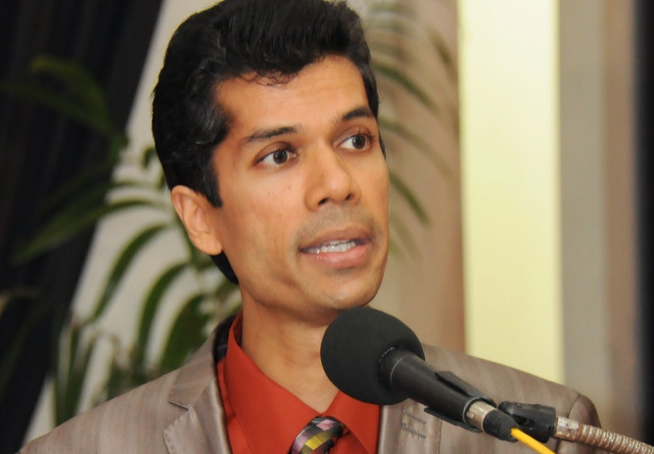The History and Significance of International Men’s Day

So, where did this movement begin, and more importantly, why does it deserve your attention as a parent?
When was the last time you really stopped to appreciate the men in your life — not just for fixing the leaky tap or assembling yet another IKEA shelf, but for the countless roles they juggle? Fathers, brothers, uncles, and even your sons — they carry responsibilities that often go unnoticed. From the emotional load of being a rock for their families to the societal pressure to “man up,” their challenges are as complex as they are under-discussed. And that’s why we remember them through International Men’s Day.
This day is far more than just a calendar filler. It’s a chance to hit pause and ask, “How are we really supporting the men we care about?” This day isn’t just about pats on the back, it shines a light on vital conversations around mental health, breaking stereotypes, and redefining what it means to be a positive role model in today’s world.
So, where did this movement begin, and more importantly, why does it deserve your attention as a parent?
Table of Contents
A Brief History of International Men’s Day
International Men’s Day was first celebrated in 1992, thanks to Trinidadian scholar Dr. Jerome Teelucksingh. His vision was clear: to create a day dedicated to recognizing men’s achievements and addressing pressing issues such as male health, gender-based violence, and the importance of positive male role models. What began as a local observance quickly gained global traction, with countries around the world adopting the day as an opportunity for celebration and reflection.

Trinidadian scholar Dr. Jerome Teelucksingh
Each year, International Men’s Day is observed on November 19. This date serves as a reminder that while we honour men’s contributions, we must also address the challenges they face—such as mental health issues, societal expectations, and discrimination. By fostering open conversations about these topics, we can create supportive environments where men feel empowered to thrive.
As parents, you know how much pressure society places on men — to succeed, provide, and stay stoic. By understanding the history of International Men’s Day, you’re taking the first step to challenging these norms and raising your children in a more balanced environment.
Why International Men’s Day Matters for Families

It’s easy to dismiss International Men’s Day as “just another awareness day,” but its focus hits close to home. For fathers, it’s a chance to celebrate their contributions to the family. For sons, it’s an opportunity to redefine masculinity in healthier ways.
Modern families are changing. Fathers are no longer just breadwinners, they’re also active caregivers. International Men’s Day encourages families like yours to rethink outdated gender roles and celebrate men’s emotional and nurturing sides.
When was the last time you openly talked with your kids about gender stereotypes? Teaching them that dads can cook dinner, cry during a movie, or attend parent-teacher meetings breaks down barriers for future generations.
Highlighting Men’s Mental Health
One of the key themes of International Men’s Day is mental health. Men are often expected to “tough it out” and keep their struggles hidden. Yet, mental health issues in men are a silent epidemic. In Singapore, studies have shown that men are less likely to seek help for mental health challenges compared to women.
As a parent, this is your chance to show your children that asking for help is a sign of strength, not weakness. Conversations about mental health should start at home. Normalize these discussions for your sons and daughters, so they grow up knowing it’s okay to express vulnerability.
Why Men Need Positive Influences

International Men’s Day also celebrates positive male role models. Think about the men in your life who inspire you or your kids. They could be teachers, coaches, or even friends who challenge toxic masculinity by embracing kindness and empathy.
Encourage your children to identify and appreciate these role models. Ask your son, “Who do you look up to and why?” By doing this, you’re helping him develop a strong sense of self and a balanced view of masculinity.
How Will You Celebrate International Men’s Day?
Celebrating International Men’s Day at Home
So how can you incorporate the spirit of International Men’s Day into your family life? Here are some engaging ideas that can spark meaningful conversations:
- Family Discussions: Set aside time to talk about what it means to be a positive role model. Encourage your children to share their thoughts on male figures they admire—be it family members, teachers, or public figures.
- Community Involvement: Participate in local events or initiatives that celebrate men’s contributions. Volunteering together can provide valuable lessons about service and community engagement.
- Educational Activities: Use books or movies featuring strong male characters who demonstrate integrity and kindness. Discuss these stories with your children to highlight important values.
- Health Awareness: Take this opportunity to discuss health topics relevant to men. Encourage open dialogue about mental health and emotional well-being—topics often stigmatized but crucial for overall health.
So, what does International Men’s Day mean to your family? It’s not just about celebrating men, it’s about creating a world where men and women can thrive equally. By taking small steps — like starting conversations, challenging stereotypes, and embracing vulnerability — you can contribute to this change.
The next time November 19 rolls around, take a moment to appreciate the men in your life. How will you honour them and teach your kids to do the same? It starts with you.
ALSO READ
Making the Most of Paternity Leave: 10 Ways Dads Can Lend a Hand, Bond, and Build Memories